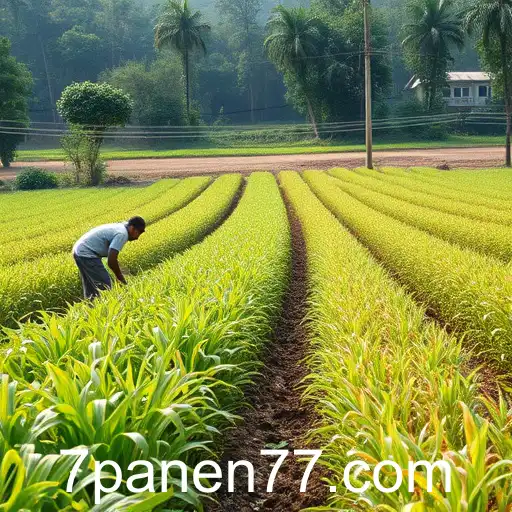
Exploring the intersection of blockchain and AI in agriculture, with insights into current trends and challenges.
In recent years, the agriculture sector has seen a significant shift towards technology-driven solutions, and 2025 is proving to be no exception. As the world grapples with climate change and food security challenges, innovations such as blockchain and artificial intelligence (AI) are playing a pivotal role in transforming traditional farming practices. One standout in this digital transformation is the panen77 platform, which exemplifies the integration of blockchain technology in the agricultural landscape.
Blockchain offers a decentralized and transparent method for recording transactions, ensuring that every step from seed to harvest can be verified and tracked. This transparency is crucial for food safety, as consumers demand more information about the source and quality of their food. With blockchain, farmers can trace the lineage of their products, ensuring authenticity and reducing the risk of fraud. Companies utilizing platforms like panen77 can assure consumers of the quality and origin of their produce, fostering trust and confidence.
Artificial Intelligence is another game-changer in the agricultural industry. Through the analysis of large datasets, AI allows farmers to enhance their productivity by predicting weather patterns, optimizing resource use, and monitoring crop health. Tools driven by AI can provide actionable insights that help farmers make informed decisions that maximize yield and minimize environmental impact. This technology not only improves efficiency but also supports sustainability goals by reducing the use of fertilizers and pesticides.
Despite these advancements, challenges remain. The adoption of these technologies requires significant investment, which can be a barrier for small-scale farmers. Moreover, there is a need for robust digital infrastructure and training to support these innovations. Governments and private sectors must collaborate to ensure that all farmers, regardless of scale, have access to the tools and knowledge needed to harness the power of digital agriculture.
In conclusion, the role of blockchain and AI in agriculture is undeniable. Platforms like panen77 highlight the potential of these technologies to revolutionize traditional farming, ensuring food security and sustainability for the future. As the world continues to embrace these changes, it is essential to create an inclusive environment where all stakeholders can benefit from the digital transformation in agriculture.




